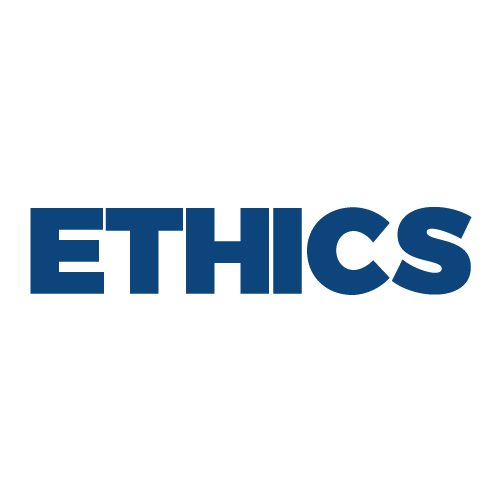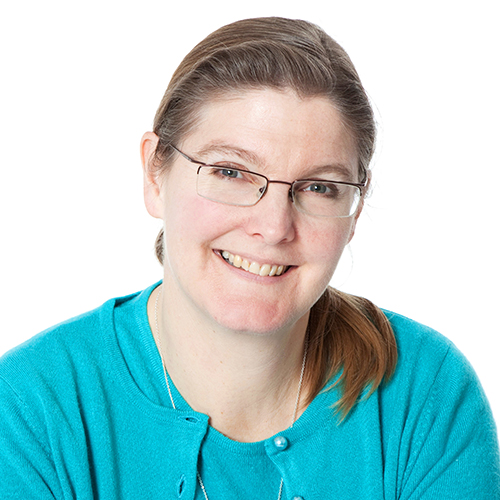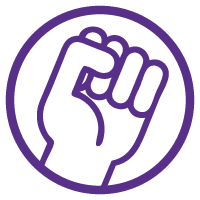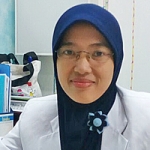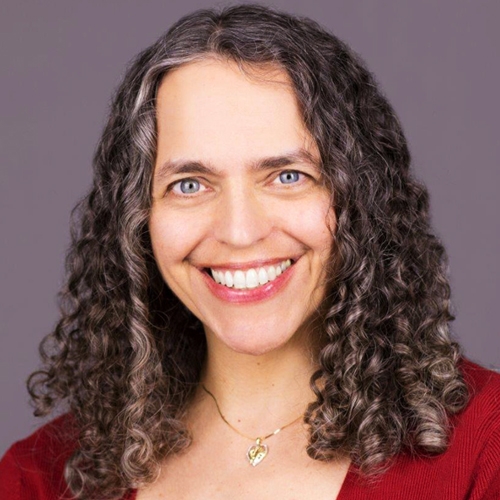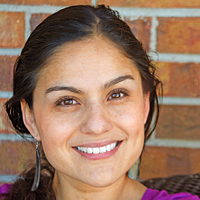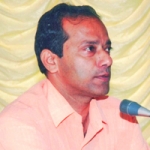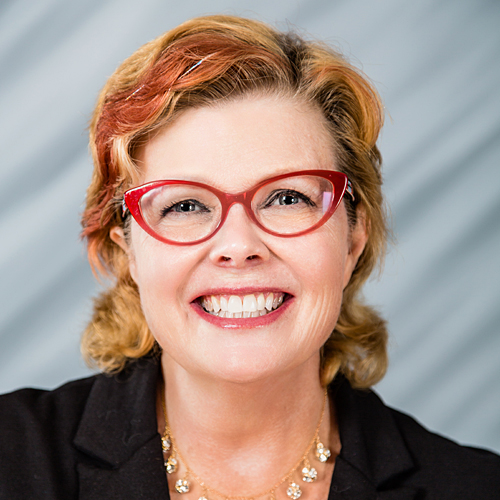 IBCLC Detailed Content Outline: Clinical Skills Focused CERPs - Section VII
IBCLC Detailed Content Outline: Clinical Skills Focused CERPs - Section VII
Access CERPs on Clinical Skills for the IBCLC Detailed Content Outline recertification requirements. Enjoy convenient on-demand viewing of the latest Clinical Skills focused IBCLC CERPs at your own pace.
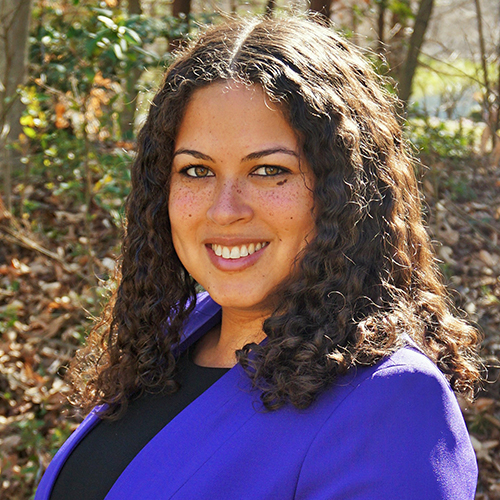

Jessica Lee is a Staff Attorney at the Center for WorkLife Law, and co-founder of the Center’s Nursing Mothers Law Project. She works to advance gender equality in the workplace and in education, and is a nationally recognized expert on discrimination related to pregnancy and breastfeeding. Lee has provided know-your-rights resources and training on workplace supports for breastfeeding to thousands of healthcare providers, public health practitioners, and employers. She also seeks to prevent discrimination by working with institutions to draft and implement family-responsive policies.
Lee’s writing has been featured in publications ranging from Harvard Business Review and The Chronicle of Higher Education to the journals Breastfeeding Medicine and Midwifery and Women’s Health. She is a co-author of the study, Exposed: Discrimination Against Breastfeeding Workers.
One of the most challenging experiences on a parent’s lactation journey is managing return to work. When lactating workers have access to both time and space for expressing breast milk, they are more likely to meet their breast/chestfeeding goals, yet many struggle to access these simple accommodations. Participants will gain an understanding of how workplace conditions influence lactation, become familiar with key legal principles protecting lactating parents in the workplace, and, learn strategies to ethically support their clients in reducing workplace barriers to continued lactation.
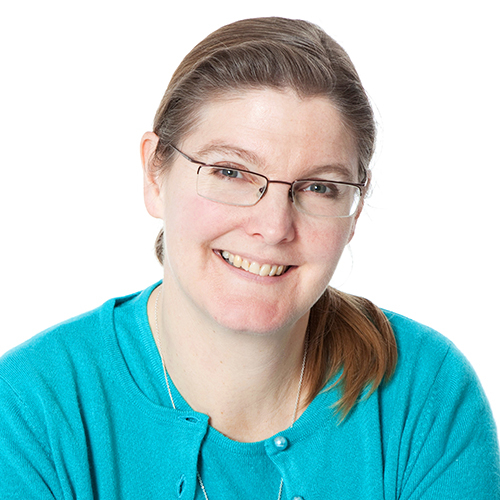

Helen Gray MPhil IBCLC is Joint Coordinator of the UK Steering Group of the World Breastfeeding Trends Initiative (WBTi). In 2017 she and Clare Meynell IBCLC jointly received the Award for Outstanding Contribution to Breastfeeding from the Lactation Consultants of Great Britain (LCGB), for leading the UK’s first WBTi assessment of infant feeding policies and programmes.
Helen is an international speaker on ethics and conflicts of interest. She represents La Leche League of Great Britain on the UK Baby Feeding Law Group, which works to bring the International Code of Marketing of Breastmilk Substitutes into UK law. She is also Policy and Advocacy Lead for Lactation Consultants of Great Britain, and previously co-chaired LCGB’s Communications Team.
Helen’s background in anthropology and human evolution has influenced her interest in how breastfeeding, and the way we nurture our babies, are influenced by both human biology and culture.
Her current advocacy focus is the need for strong policies to protect infant feeding in emergencies. She currently serves on the Advisory Panel for a London Food Resilience research project with Oxford University.
In her spare time, she can be found sculling on the River Thames.
The profession of lactation consultant has grown around the world and has evolved enormously since its inception in 1985. At first, the development of the profession provided skilled breastfeeding counsellors with a role that aligned with the medical model, provided a career pathway, and provided evidence of lactation skills and experience.
Over the years, the certification has grown and now there are over 33,000 International Board Certified Lactation Consultants© (IBCLC©) in 125 countries with the exam now offered in 17 languages. Lactation consultants are now recognised at national and global levels as providers of expert lactation care, and they work within a “landscape” of varied roles and qualifications, each of which brings their own important skill set. IBCLCs play many roles, ranging from advocate to clinical expert, from policy consultant to researcher. The profession has evolved in response to sociocultural change and global issues. One major change has been the increasing importance of technology and the internet, driven partly by the fact that the consumers of breastfeeding care are the most internet involved generation in history, with a particularly rapid transition in response to the COVID-19 pandemic. Major shifts have included the recognition of structural racism, health disparities, inequities in health care and in breastfeeding support, the importance of building a more diverse workforce, recognition of the gendered nature of lactation care and the need for inclusion for people of all genders, breastfeeding as a reproductive right and as a human right of the breastfeeding dyad, and the impact of how babies are fed on many other spheres, including climate change and public health.
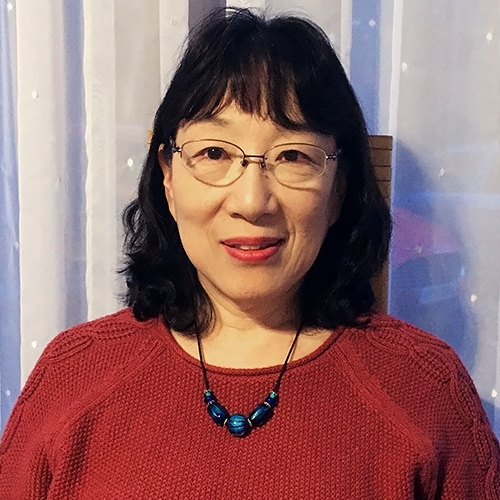
Lactation Education as Advocacy: Increasing Knowledge Among Physicians

Tomoko Seo is a pediatrician and IBCLC in Japan, working in a private clinic with colleagues including IBCLCs who practice's general pediatrics and breastfeeding medicine. She became certified as an IBCLC in 1999 and recertified in 2004, 2009, 2014 and 2019. She is a member of the Japanese Association of Lactation Consultants (JALC) since 1999, when it was founded. JALC has been holding conferences several times a year, including the “Annual Breastfeeding Seminar for Physicians” since 2005 to provide breastfeeding education to physicians and improve breastfeeding support among physicians. Tomko has been a member of the Academy of Breastfeeding Medicine (ABM) since 1999. She is also an active member of the International, Protocol, Education, Conference, Membership Committees of ABM.
Breastfeeding facilitates good health in infants and mothers, and for all humans throughout life. Medical professionals should be advocates for breastfeeding, and physicians could be one of the most influential advocates. However, many medical students, residents and physicians have very limited opportunities to learn about breastfeeding and human lactation during their medical education.
From another point of view, breastfeeding is a private experience as well as a scientific matter. If a physician or a partner successfully breastfeeds, she/he may become a more effective advocate for breastfeeding. So, it is imperative to provide medical students, residents, and young physicians with education about breastfeeding and to enable them to experience successful breastfeeding personally, in order for them to promote and support breastfeeding among their patients.
The Academy of Breastfeeding Medicine is an international organization of physicians who protect, promote, and support breastfeeding, and one of its goals is to develop and disseminate the standard for physician education around breastfeeding and human lactation. ABM has developed protocols and statements for health care providers to utilize for breastfeeding management.
The WHO/UNICEF revised Ten Steps to Successful Breastfeeding in 2018, includes in Step2 “Ensure that staff have sufficient knowledge, competence and skills to support breastfeeding”. This included physician education. There are many ways to educate physicians, and ABM materials could be one option.

View Details / Enroll
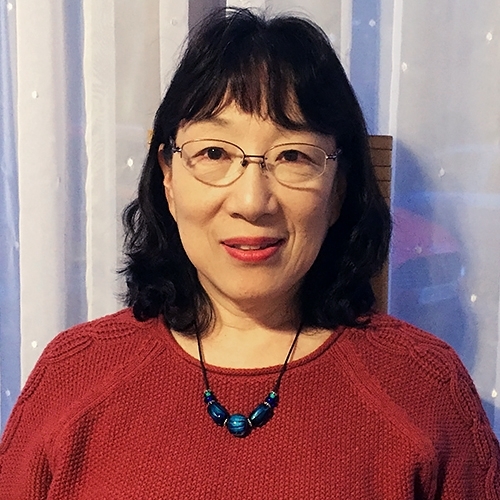
View Details / Enroll
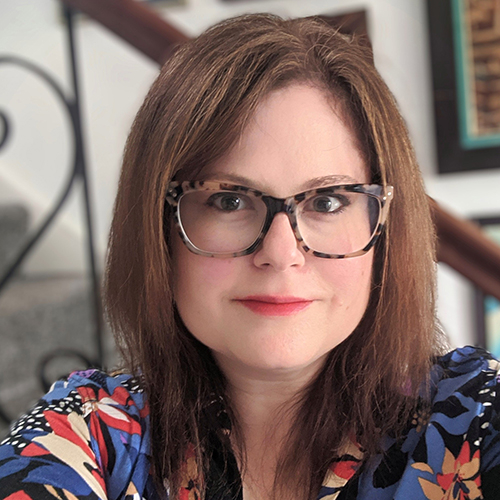
Lactation Education Outside the Box: Innovative Teaching Strategies to Engage Your Audience

Tamara Drenttel Brand holds an MA in Near Eastern Studies from the University of Arizona and a Master’s in Public Health (MPH) from the American University of Beirut. She spent 10 years in the Middle East, where she worked as a public health practitioner, infant and maternal health consultant and an IBCLC. She has supported breastfeeding dyads from all over the world both in private practice and as a volunteer. In 2011, she founded and still actively facilitates “Mama 2 Mama Beirut Breastfeeding Support,” the largest breastfeeding peer support network in the Middle East (currently at 25k+ members). Additionally, she founded Galactablog, a professional group for lactation specialists and those aspiring-to-be (currently at 4.7k+ members) and has authored several articles for La Leche League’s monthly leader publications in both the Middle East and Ireland.
She is currently an international speaker on the topics dealing with breastfeeding in the Middle East, innovative lactation teaching strategies, working in resource-scarce settings, providing culturally sensitive lactation support, developing and implementing peer counselor training programs, mast cell disease and other related topics. Due to her own chronic health conditions, she has a special interest in educating others about mast cell disease and supporting those with chronic illnesses. She currently resides in a seaside village in Ireland with her family.
Topic: Contextualizing Breastfeeding in Lebanon - [View Abstract]
Topic: Lactation Education Outside the Box: Innovative Teaching Strategies to Engage Your Audience - [View Abstract]
Topic: Mast Cell Diseases and Lactation Care in the Post-Covid Era - [View Abstract]
Topic: Providing Culturally Sensitive Support for Breastfeeding Muslim Families - [View Abstract]
Topic: Reflections on a Breastfeeding Peer Counselor Program in Lebanon: Lessons Learned and Looking Forward - [View Abstract]
Are you a lactation professional or health care provider looking for ways to engage your audience? Whether your audience is breastfeeding families, parents-to-be, peer counselors, volunteers, health care professionals or lactation specialists, then this presentation is for you! In it, I will show how creative solutions can overcome a lack of resources or technology to provide mothers and families with engaging and effective breastfeeding support. This session will cover innovative and interactive educational strategies and activities that can be used to capture your audience’s attention and to encourage them to retain vital information and strategies to help them breastfeed.
These concepts are practical and applicable to all types of settings, including but not limited to: breastfeeding support groups, lectures and presentations, training sessions, webinars, seminars and one-on-one lactation consultations. Moreover, they are easily modifiable to fit the needs of different populations and cultures. As many lactation professionals work in low-income communities or resource-poor settings that frequently lack many of the latest gadgets and expensive lactation aids, this presentation will offer demonstrations and tutorials of Do-It-Yourself (DIY) options that can ensure that breastfeeding mothers and families get the best support possible, even when resources are scarce.
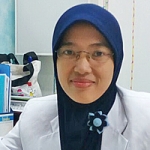

I am a wife and mother of two breastfed children. I was a general practitioner and am currently more focused on helping mothers to breastfeed. I work at Puri Cinere Hospital and Kemang Medical Care Women and Children as a lactation counselor. I currently on leave due to accompany my husband school in United State for his PhD programs. Since 2009, I've been helping mothers who have difficulties breastfeeding. It is a delight when we meet during tough times, then met again once their breastfed child are big and smart, and most importantly successfully breastfed. My desire is to help mothers to breastfed wherever I live in this world.
Good doctor–patient communication is essential for positive health care outcomes. Ideal doctor–patient communication generally is reflected in a partnership communication style. However, in Southeast Asian settings, we often see a more one-way style with little input from the patient.
Helpline services is breaking the ice, and is considered a new option modality for patients in Indonesia. The ease in contacting medical professionals through phone and text messages seems more comfortable, personal and inexpensive.
Breastfeeding support via a helpline helps mother to feel reassured, confident and more determined to continue breastfeeding, and in majority of occasions resolves their particular concerns.
Lactation Clinic in Puri Cinere Hospital, Depok, West Java, Indonesia was established in August 2011 and operated a helpline since the beginning of its establishment. Helpline service is open 24 hours daily, through phone, text messages, whatsapp, or blackberry messenger directly to doctors who are also breastfeeding counselors. There are six doctors who take turns every month to receive calls and reply to messages. Helpline numbers are distributed to patients during post natal rounds or at patients doctors appointments in lactation clinic.
A longitudinal study conducted in March to December 2014 shows 202 helpline cases in 9 months. There were 29 cases (14%) questioning EBM handling, 24 cases (12%) asking about complementary feeding, 19 cases (9%) of infant stool, 19 cases (9%) medication and mother's milk, 15 cases (7%) frenotomy after care and other various problems. 63% cases were successful managed via helpline, and 37% cases were referred to the Lactation Clinic to get further help.
There were many cases resolved through helpline calls and messages. High success rate of helpline management shows that helpline program is effective to help mothers and resolved their particular concerns; especially in Indonesia.

View Details / Enroll


Catherine Watson Genna BS, IBCLC is an International Board Certified Lactation Consultant in private practice in New York City. Certified in 1992, Catherine is particularly interested in helping moms and babies breastfeed when they have medical challenges and is an active clinical mentor. She speaks to healthcare professionals around the world on assisting breastfeeding babies with anatomical, genetic or neurological problems. Her presentations and her writing are enriched by her clinical photographs and videos. Catherine collaborates with Columbia University and Tel Aviv University Departments of Biomedical Engineering on research projects investigating the biomechanics of the lactating nipple and various aspects of sucking and swallowing in breastfeeding infants. She is the author of Selecting and Using Breastfeeding Tools: Improving Care and Outcomes (Praeclarus Press 2009) and Supporting Sucking Skills in Breastfeeding Infants (Jones and Bartlett Learning 2008, 2013, 2017) as well as professional journal articles and chapters in the Core Curriculum for Lactation Consultant Practice and Breastfeeding and Human Lactation. Catherine served as Associate Editor of the United States Lactation Consultant Association’s official journal Clinical Lactation for its first seven years.
Topic: Breastfeeding Strategies for Tongue-tied Infants - [View Abstract]
Topic: Critical Assessment of Apparent Tongue-Tie - [View Abstract]
Topic: Introduction to Cervical Auscultation - [View Abstract]
Topic: Lactation Support for Infant Biomedical Challenges - [View Abstract]
Topic: Organization of tongue movements before and after frenotomy for posterior tongue-tie: an Ultrasound analysis - [View Abstract]
Topic: Positioning and Latch for Breastfeeding - [View Abstract]
Topic: Ultrasound Analysis of Sucking: Tongue-Tie and Confounders - [View Abstract]
Topic: Using Breastfeeding Supplementers - [View Abstract]
Infants with biologically based sucking problems can often breastfeed with specific lactation management and supportive techniques. This presentation provides an overview of some common medical problems that cause feeding difficulty and strategies that can help an infant with suboptimal sucking skills to feed more normally.

Leadership Skills in Lactation: Make Extraordinary Things Happen

Paulina is the mother of three multicultural Latino children and Project Director for Lifespan Local. Paulina earned her BS in Psychology from the Pennsylvania State University, a MS in Organizational leadership from the University of Denver and is completing her PhD in Health and Behavioral Sciences at the University of Colorado - Denver. Paulina has over 18 years of experience working with families with young children. As a Maternal Child Health specialist for Jefferson County Public Health, she developed a NICU follow-up home visitation program and the pediatric emergency preparedness plan, co-founded and coordinated the Conectando Network (former Adelante Jeffco), established community navigation and lactation support groups focused on the Latino Spanish speaking community, and lead other initiatives to support leadership and partnerships among communities and organizations. During the COVID-19 pandemic, she managed the new program Whole Community Inclusion to ensure the pandemic response and recovery implementation included health equity practices that recognize the needs and the strengths of priority populations in the county. Her areas of current work include promoting perinatal and infant mental health along the continuum of care; building community capacity to navigate health and education systems; facilitating organizational change to embrace linguistic and culturally responsive practices; and establishing community-placed participatory programs to strengthen communities. She likes to be with people, learn from and with others, and connect passions for meaningful work.
Topic: From the NICU to the home: mother’s experiences - [View Abstract]
Topic: Leadership Skills in Lactation: Make Extraordinary Things Happen - [View Abstract]
Topic: Liderazgo en Lactancia - Para Alcanzar Metas Extraordinarias - [View Abstract]
Topic: Nursing A Preemie, Perspectives For Lactation Supporters and Professionals - [View Abstract]
Many of us come to work in breastfeeding envisioning a world where mothers and babies can breastfeed without barriers; however, we quickly learn that breastfeeding challenges go beyond latching and positioning.
To effectively support a breastfeeding/chestfeeding family, we have to support the parents, the extended family, the primary care provider, the workplace culture, the childcare, and the community; in summary, supporting one dyad can be an intervention to the whole social system. Indeed, breastfeeding advocacy is about building systems and consistently leading cultural changes to more deeply reinforce human feeding as the norm.
Kouzes and Posner (2012) state: “if you want to have a significant impact on people, on organizations, and oncommunities, you’d be wise to invest in learning the behaviors that enable you to become the very best leader you can.” With that in mind, lactation consultants and lactation advocates would benefit by learning leadership behaviors and skills that will support their efforts towards cultural change, inspire shared visions, challenge processes, becoming strategic advisors, and leading from the inside out.
Lactation leaders would benefit by being able to align values and beliefs with actions and strategies to promote breastfeeding as part of whole community development and as a public health strategy. In that way, lactation has a presence in early childhood initiatives, maternal and infant health, mental health programs, and any health, social, educational intervention.
Want to normalize lactation? Join this interactive session and become the leader who can make extraordinary lactation things happen in your community.
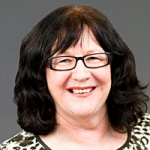
Learning styles – Certainly Not a One Size Fits All

Geraldine has been involved in breastfeeding support and education for 30 years in Ireland. She works in private practice as a Lactation Consultant doing home visits. She has a major interest in Adult Education and she runs Training of Trainer (Lactation) courses for healthcare professionals in Ireland. She tutors for a group called Cuidiú, training both breastfeeding counselors and childbirth educators.She has organized Peer to peer education for other groups in Ireland and abroad. Geraldine has spoken at many conferences both in Ireland and abroad or a range of topics but her choice usually comes back to her interest in Adult education and the theories around learning styles, groupwork, experiential learning and programme development.
Topic: Learning styles – Certainly Not a One Size Fits All - [View Abstract]
Learning styles can be defined as the cognitive, effective and psychosocial behaviours that can serve as relatively stable indicators of how learners perceive, interact with and respond to a learning environment. Learning styles are just one part of Adult education theory, how do the theories around Androgogy, Transformation learning, Experiential learning and programme development affect those offering education in the world of breastfeeding. In this session, we will explore what we have to understand about how adults learn in order to be able to communicate effectively. We will also explore ways to empower people to understand breastfeeding and their role in advocating for women and babies.
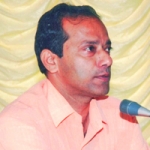

Dr. Satish Tiwari has worked as Professor of Pediatrics for 5- 6 years, and was responsible for the formation of the Indian Medico-Legal Ethics Association (Founder President), and the Human Milk Banking Association (India). He is a recipient of the Dr Nirmala Kesaree Oration 2012 and Dr NB Kumta Award 2015 for outstanding work in IYCF. He is a trainer in Human Lactation, breastfeeding, human milk banking, medico-legal issues etc. He has National, International publications and has provided editorial services for: a Textbook on Medico-legal Issues, Feeding Fundamentals, International J Gastroenterology, Hepatology, Transplant & Nutrition, and the Journal Indian Medico-Legal Ethics Association. He is Founder Editor-in-chief for the New Indian Journal Pediatrics. He is Founder Secretary Medico-legal group, Founder Secretary IYCF chapter IAP. He worked as President BPNI Maharashtra 04-06, Member Central Coordination Committee of BPNI (New Delhi) 06-08 and National Executive Indian Academy Pediatrics 07. He was a Postgraduate & Undergraduate examiner in Pediatrics and has been invited as a Guest Speaker on Infant feeding, breastfeeding, Medico-legal issues, HIV, Behavioral problems, etc.
Food/nutrition is a basic need of individuals. Unethical, uncontrolled marketing practices have added to age-old confusions and misconceptions. Products are subtly portrayed as essential and convenient to “modern parents”.
Since the time that WHO/UNICEF has declared an International Code, many WHA resolutions have been resolved. Convention on the Rights of the Child accepts the right to enjoy a highest attainable standard. Innocenti Declaration was adopted on Protection, Promotion and Support of Breastfeeding.
It is important to support woman, by enacting legislation and adopting its enforcement and by providing adequate paid maternity benefits/leave.
The Indian government has enacted the Infant Milk Substitutes, Feeding Bottles & Infant Foods Act.
People should be vigilant enough to realize that legislations are not merely pieces of paper. Health workers have a moral and ethical responsibility to provide health education and report violations by becoming a “Watch-guard”.
Even after many legislations, some manufacturers are behaving as if these recommendations don’t affect them and have ignored or just given lip services.
Health workers, and the general population has a great influence on decision making. There is need to follow laws in spirit rather than words.

View Details / Enroll
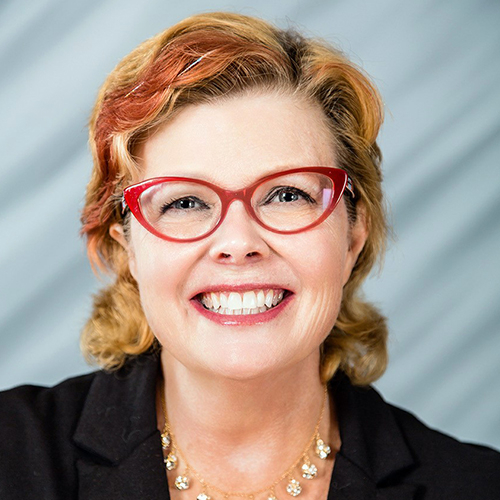
Lessons to Learn from Fed Is Best: How Can We Improve Our Care?

Dr. Kendall-Tackett is a health psychologist and International Board Certified Lactation Consultant, and the Owner and Editor-in-Chief of Praeclarus Press, a small press specializing in women's health. Dr. Kendall-Tackett is Editor-in-Chief of the journal, Psychological Trauma and was Founding Editor-in-Chief of Clinical Lactation, a position she held for 11 years. She is Fellow of the American Psychological Association in Health and Trauma Psychology, Past President of the APA Division of Trauma Psychology, and a member of APA’s Publications and Communications Board.
Topic: Breastfeeding Helps Mothers Overcome the Legacy of Abuse and Adversity: It Makes All the Difference - [View Abstract]
Topic: Burnout, Compassion Fatigue and Self-Care for Members of the Perinatal Team - [View Abstract]
Topic: Burnout, Secondary Trauma, and Moral Injury in Perinatal Care Providers - [View Abstract]
Topic: Does Breastfeeding Protect Maternal Mental Health? The Role of Oxytocin and Stress - [View Abstract]
Topic: Lessons to Learn from Fed Is Best: How Can We Improve Our Care? - [View Abstract]
Topic: Mother-Infant Sleep Location: It's Not as Simple as it Seems - [View Abstract]
Topic: Trauma and Breastfeeding: Working Effectively with Trauma Survivors - [View Abstract]
Topic: What’s New in Postpartum Depression? A Summary of Current Findings - [View Abstract]
Fed is Best is a foundation with a major social media presence who seek to warn parents and practitioners about the dangers of insufficient exclusive breastfeeding. Through their social media campaigns that have galvanized a backlash against exclusive breastfeeding, lactation care providers, and the Baby-Friendly Hospital Initiative. Although lactation specialists disagree with much of their content, they have raised awareness about mothers who do fall through the cracks of our care system and may suffer as a result. The steep drop-off in rates of exclusive breastfeeding is an indication of this. This presentation will examine three provider-level barriers that negatively impact breastfeeding and what we can do to improve care so that mothers will reach their breastfeeding goals.

View Details / Enroll



